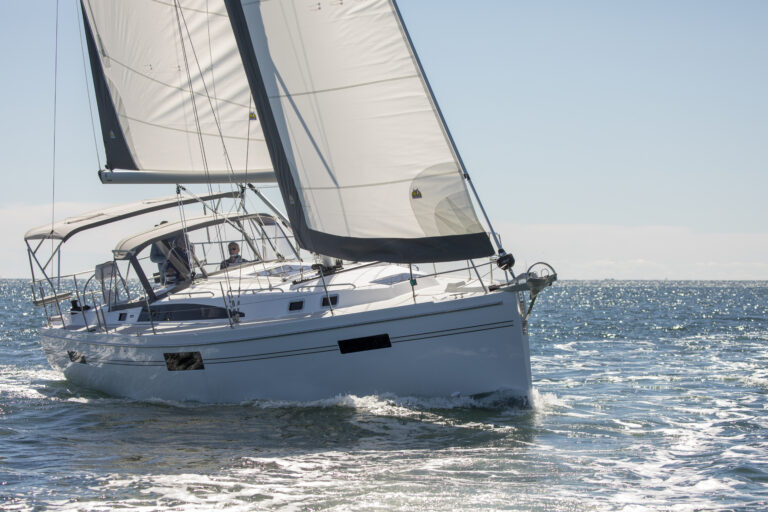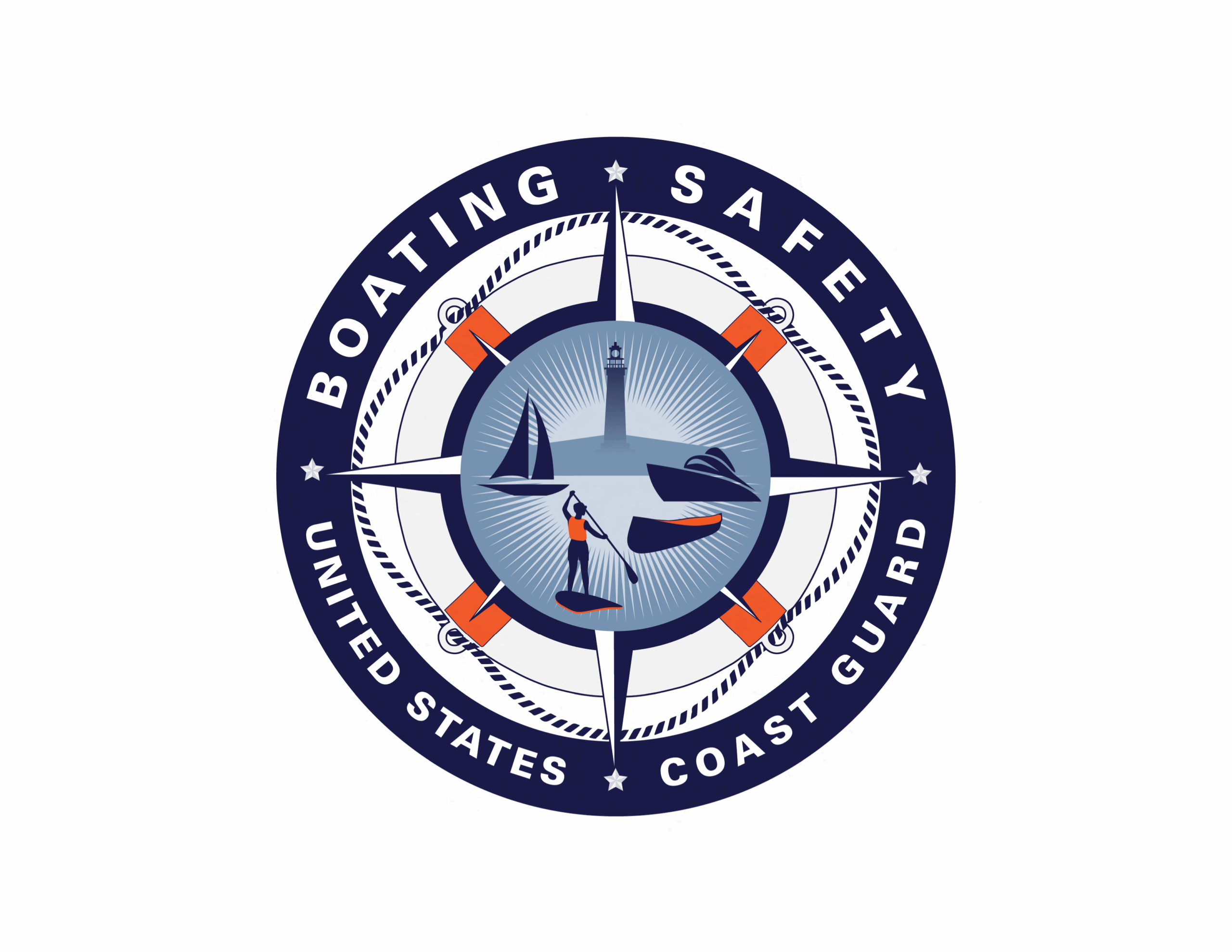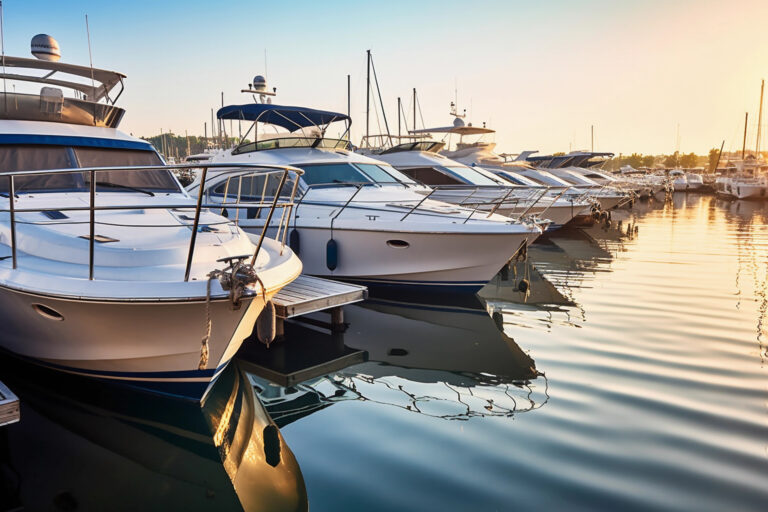Kirk Hanna grew up boating on the Intracoastal Waterway near North Myrtle Beach, S.C. After he entered the professional world, he wound up launching a construction firm. One of his clients was Ocean Lakes Family Campground, one of the largest camping areas on the East Coast.
A friend who was a camper would regale Hanna with stories of his multimonth adventures. When a piece of property came available on the Grand Strand Intracoastal Waterway in North Myrtle Beach, the proverbial lightbulb turned on.
“Me being a boating guy and growing up on the river and then seeing campers rolling in and out of Ocean Lakes during my job gave me the idea to build a resort that caters to both,” Hanna tells Soundings Trade Only.North Myrtle Beach RV Resort & Dry Dock Marina opened in 2018. In 2021, Hanna, who is president of the company, added another phase with 40 more RV sites and additional boat storage.
“As far as I can find, we are the first one on the East Coast,” Hanna says of being a resort that caters to boaters and RV owners.The concept is gaining traction. In Tennessee, the Rockwood Marina & RV Resort opened for Labor Day last year to serve RVs and boats. Owners of such businesses say that diversifying lets a resort or facility establish a more secure revenue stream, with compatible side businesses such as rentals, on-site restaurants and stores that can serve a larger customer base.
 North Myrtle Beach RV Resort & Dry Dock Marina
North Myrtle Beach RV Resort & Dry Dock MarinaAdditionally, an RV resort that has access to rental boats can introduce would-be boaters to the water. Boaters and RV enthusiasts take similar approaches to vacationing: Both enjoy being active near or on the water.
Rick Roughen, president of National Marina Sales in Boca Raton, Fla., specializes in brokering marinas and boat dealerships. He has customers asking for properties that handle both. “It’s new trend that’s working its way up,” he says. “People who are looking for a larger-scale marina operation, they’ve been increasingly receptive to an RV park add-on or existence. It’s a symbiotic relationship. They like each other’s stuff, and the RV owners tend to enjoy being in a marine environment. They like to boat or bring a kayak.”
Roughen says that in most cases, a buyer would look at purchasing a marina and adding RV sites, as opposed to the other way around. “When it’s lakefront, it’s hard to get a marina because when you pull in a marina, you’ve got props swinging through the water and roaring engines with the potential to make a lake loud,” he says.
The Resort Experience
From the start, Hanna knew his property had to live up to the “resort” label. It has space for 420 boats in drystack storage, slips for up to 70 boats, 240 RV sites and 16 fixed trailers that the resort calls “cottages.” The property sits on 45 acres, and amenities include a restaurant/bar, five shower buildings, a 150-foot waterslide and a splash pad. “We are the only campground in the United States with a FlowRider surfing simulator,” he says.
Boat-moving equipment includes two Wiggins Marina Bull forklifts, one of them rated for 52,000 pounds. The building stands 50 feet tall, and racks are four tall with the capacity to handle large cruisers such as a 34-foot Sea Ray Sundancer or 40-foot center consoles.
Hanna estimates that the business breakdown is 70% RV and 30% marina. He says a typical client is someone who keeps a boat in the drystack and rents a site for the RV. The resort rents the spots for up to a month at a time during the summer, with special events around Thanksgiving, New Year’s and other holidays. As many as 25 employees are on-site depending on the season. The monthly rate for an RV site is $1,325 from May to October. “Snowbird” hookup rates start at $1,870 for 90 days.
Dry-dock rates start at $15.50 per foot, paid annually for boats up to 27 feet. Wet slips for boats measuring up to 29 feet are $13 per foot, paid annually. The fee jumps by a dollar for boats 30 feet and larger.
Another example of Hanna’s foresight when he built the property is infrastructure. “We were a step above the curve and built with upgraded power sites and Wi-Fi,” he says. There’s Wi-Fi throughout the facility, and the signal will move from one pedestal to another to maintain the signal. For one event, the resort had more than 130 Prevost Class A RVs on-site, and the power and connectivity grids handled the demand. Music plays throughout the resort too, including in the bathhouses and store — basically, wherever a guest might wander.
A Smart Investment
Rockwood Marina & RV Resort opened on Watts Bar Lake in Tennessee on Labor Day weekend 2023. The facility covers 400 acres, cost $14 million and took two years to build.It has 28 slips and will have 84 once it’s completed. They can accommodate boats up to 30 feet, and pontoons topping out around 8,000 pounds. There are currently 148 RV sites with plans for more, and the facility has a fuel dock, a cantina, shower buildings, a store, and kayak and boat rentals. The rentals are also available to local residents.
“The owners looked at opening a marina/RV park by the lake for a couple of years,” says Barb Fallon, the Rockwood resort general manager. “RVers and boaters go hand in hand, and people like to go on vacation, and they take their boats.” She says the park has good bookings for the holidays through the summer
Once the marina is at full capacity, revenues are expected to be 25% marina, 65% RV and 10% ancillary business. Because the facility is new, it has all-fiber Wi-Fi and plenty of power for boats to plug in. “We have enough Wi-Fi that everyone can stream and can work,” Fallon says. “The infrastructure is all 50/30/20-amp electrical pedestals. The other amenity is that we have solar-powered lifts at two-thirds of our boat slips.”
Among the premium amenities offered at Rockwood is delivery of food or supplies served at the cantina, anywhere on the property. A boater coming in to get gas can call and order lunch or a couple bags of ice.
Customers also like entertainment. “They’re looking for weekend events,” Fallon says. “They can pull up, sit on their boats and hang out listening to live music.”
Some waterfront RV sites have space where a boat can be beached. The Tennessee Valley Water Authority doesn’t allow overnight beaching, and the marina also has a ramp so people can haul out at the end of the day. For those who stay in-water, on an annual contract, slip rates are $275 per month with a lift and $25 without. A day pass for a boat is $25. RV rates range from $50 to $110 per night, depending on size and location of the site.
Old-School Camping
Cooper Creek Resort & Campground in Branson, Mo., opened in 1959 on Lake Taneycomo. It has cabins, 70 RV sites (seven that back up to the lake) and 23 slips. Half the slips are filled with rental boats, and the slips can be rented nightly.
Most cottage and RV guests rent a slip, according to the company. Some families have been coming to the campground for 30 years. The business model for the facility is focused on revenue from the RVs and cabins, while the slips are an appreciated amenity.
New owners bought the resort in 2019 and have upgraded the Wi-Fi a few times. When the park is full, all the guests can enjoy streaming.
Larger RV sites with 50-amp hookups are the first to sell out. Rates for a site with 30 amps of power start at $56 per night. A lakefront 50-amp hookup site is $75. A jonboat rental for the full day is $175 with a tank of gas. Customers can move up to a Crestliner bass boat with a 40-hp outboard and a trolling motor for $250 per day. A 24-foot pontoon boat with a 60-hp outboard goes out for $325 per day.
Focusing on Marinas
Large corporations such as Safe Harbor and Suntex have been scooping up marinas, but neither is focused on combining with RV amenities. Safe Harbor Marathon in Florida is the only property in the company’s 130-site portfolio with a handful of spots for RVs. Seven of Safe Harbor’s facilities in the Midwest — mostly around the Great Lakes — offer RV storage.
Out of its 74 marinas, Suntex has five properties with RV sites. “Our primary focus is to buy the marina asset first,” says Mike Warntjes, senior vice president at Suntex. “If there’s a complementary asset that’s an RV park, it’s not something we would say no to.”
Calling RVs a “complementary business line,” Warntjes estimates that 40% of Suntex’s RV customers “either have a boat they’re storing at the marina, or they will pull in a boat while they’re camping.”
During the pandemic, Suntex saw a big increase in boating and RV activity, though numbers are now back to 2019 levels. Regardless of the type of customer, Warntjes says, most want the same things, such as premium amenities, modern power and connectivity systems.
“If we’re providing the right marina-based experience, it tends to lead to more traffic from the RV customer,” he says, citing boat rentals as a prime example. “The RV really complements the other businesses. An RV owner is likely to rent a boat while they’re on-site. It introduces the new customers to boating.”
Closing the Deal
In early February, Roughen was close to sealing the deal on Rivertown, an estimated $18 million marina and RV resort outside of Cincinnati on the Ohio River. It had been a marina where the owners carved out a 10-acre parcel of land and installed RV sites.
One thing the RV component provides is an almost hands-off revenue stream. RV customers use a reservation app called Campspot to reserve sites. Then they arrive, plug in, stay for the weekend and move along when their stay is up. “It keeps itself moving all by itself,” Roughen says. “It does a phenomenal job of making the place operate itself.”
He says the revenue stream from the RV side is “readable income and is static,” adding to the value of the marina. “It’s similar if not identical cap rates to boat storage because it’s reliable and continuous, and the demand is huge.”
Roughen sold Rivertown to the current owners, and the RV side of things enticed them. “The fact that it’s there makes them excited because it’s a diversified revenue stream,” he says. “There are people who would love to get into the marina space, and they would love to have RVs or campgrounds.”
This article was originally published in the March 2024 issue.












